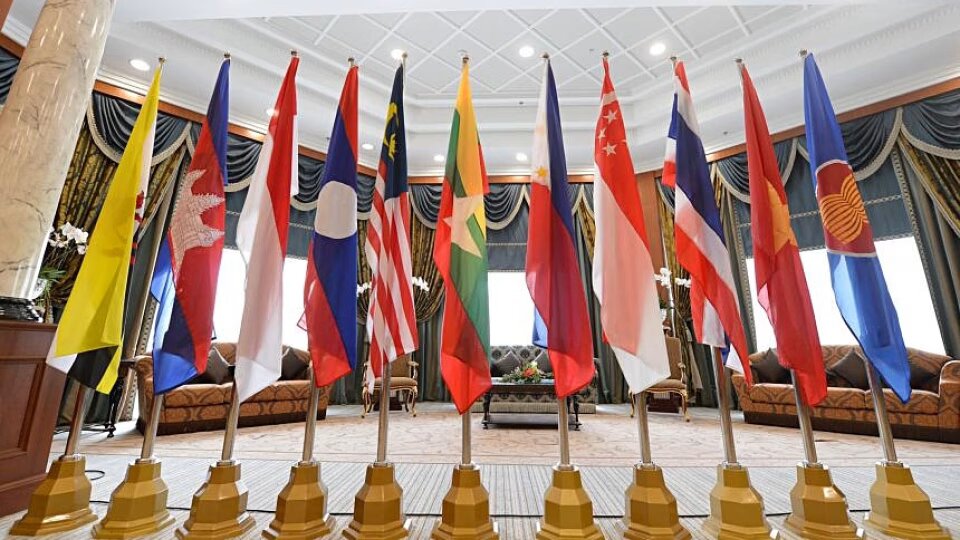Prevention does not make headlines. Preparedness is not the stuff of TV series or box office revenues.
Yet if anyone needed a reminder of the devastation that infectious diseases can wreak, the pandemic that began in 2020 speaks for itself. Diseases such as COVID-19, Ebola, Zika and mpox devastate families, communities and economies. They can bring the world to a virtual standstill.
Here in Southeast Asia – home to some of the most densely populated countries in the world, a dangerous mix of infectious diseases and a range of security challenges – the risk is that much higher.
ASEAN understands that.
That is why, three weeks ago, under the leadership of Laos as chair of ASEAN, leaders of ASEAN countries issued the Declaration on Biosafety and Biosecurity. This declaration, which was developed with support from Canada, was adopted at the 2024 ASEAN Summit in Vientiane.
The declaration makes a specific reference to Canada’s hallmark initiative with ASEAN, the Mitigation of Biological Threats (MBT) in the ASEAN Region Program.
The MBT program is integral pillar of ASEAN’s health-security architecture and serves as a testament to the enduring the trusted partnership between Canada and ASEAN.
Why is that? Because for over a decade, the MBT program has supported ASEAN to strengthen capacities to prevent, detect and respond to all manner of biological threats facing the region, whether natural, accidental or deliberate in origin.
The MBT program helped to establish the ASEAN Emergency Operations Center Network, which provided a critical collaborative platform for ASEAN members during the pandemic and plays a vital role in helping Southeast Asian countries to improve their capability to tackle future health security emergencies.
In partnership with BlueDot, a Canadian firm based in Toronto, the MBT program has also supported ASEAN’s regional epidemic intelligence and disease surveillance hub, the ASEAN BioDiaspora Virtual Center, based in Jakarta.
Through data analytics, visualization and communication, ASEAN member states are leveraging cutting-edge technology to increase their preparedness and ability to anticipate, prevent and respond to epidemics and pandemics.
The MBT is also supporting the establishment of a health security support unit within the ASEAN Secretariat. Once operational, this unit will help the organization tackle a wide range of biological threats and build bridges with a diverse community of national, regional and global stakeholders to improve coordination.
The capacities built through this program were put to the test during the COVID-19 pandemic when the MBT was integrated into ASEAN’s Health Development Agenda for 2021-2025 and its “Health Cluster 2” work program and endorsed by ASEAN health ministers.
All of these contributions will enhance the capacities of the ASEAN Centre for Public Health Emergencies and Emerging Diseases, which will support Southeast Asian countries to prevent, detect and respond to health security threats and emergencies.
The MBT program is not just about public health. Delivered by Canada’s Weapons Threat Reduction Program, which is Canada’s contribution to the Group of Seven-led Global Partnership Against the Spread of Weapons and Materials of Mass Destruction, It is also an important part of Canada’s security partnership with ASEAN. This collaboration has achieved significant results in enhancing the capacity of ASEAN partners’ preparedness for new and emerging biological threats and their resilience in the event of a bioweapons or bioterrorist attack.
This year marks the 10th anniversary of the MBT program. And this week, experts and officials from all over the world, including Canada, are gathering in Vientiane to attend a commemorative celebration.
It has been a fruitful 10 years of partnership, and there is much to celebrate. It’s been 10 years of training epidemiologists, of disease surveillance and workshops. Ten years of pathogen analysis, diagnostic laboratory work and risk assessments. Ten years of tabletop exercises, infrastructure enhancement and joint outbreak investigations.
Ten years of strengthening ASEAN’s preparedness. Ten years of learning from each other, building trust and putting people at the heart of our efforts.
An anniversary is an opportunity to look back, but we’re looking forward, too. As part of Canada’s Indo-Pacific Strategy, we will continue to support the MBT program into the future, with funding and new programming already committed up to at least 2028.
It’s been ages, thankfully, since I heard anyone talk about “flattening the curve”. Partnerships such as this one are helping mitigate the spread of infectious diseases so that there is no future curve to flatten.
Together, Canada and ASEAN are building a safer, healthier and more resilient Southeast Asia.
-In Association with ANN

